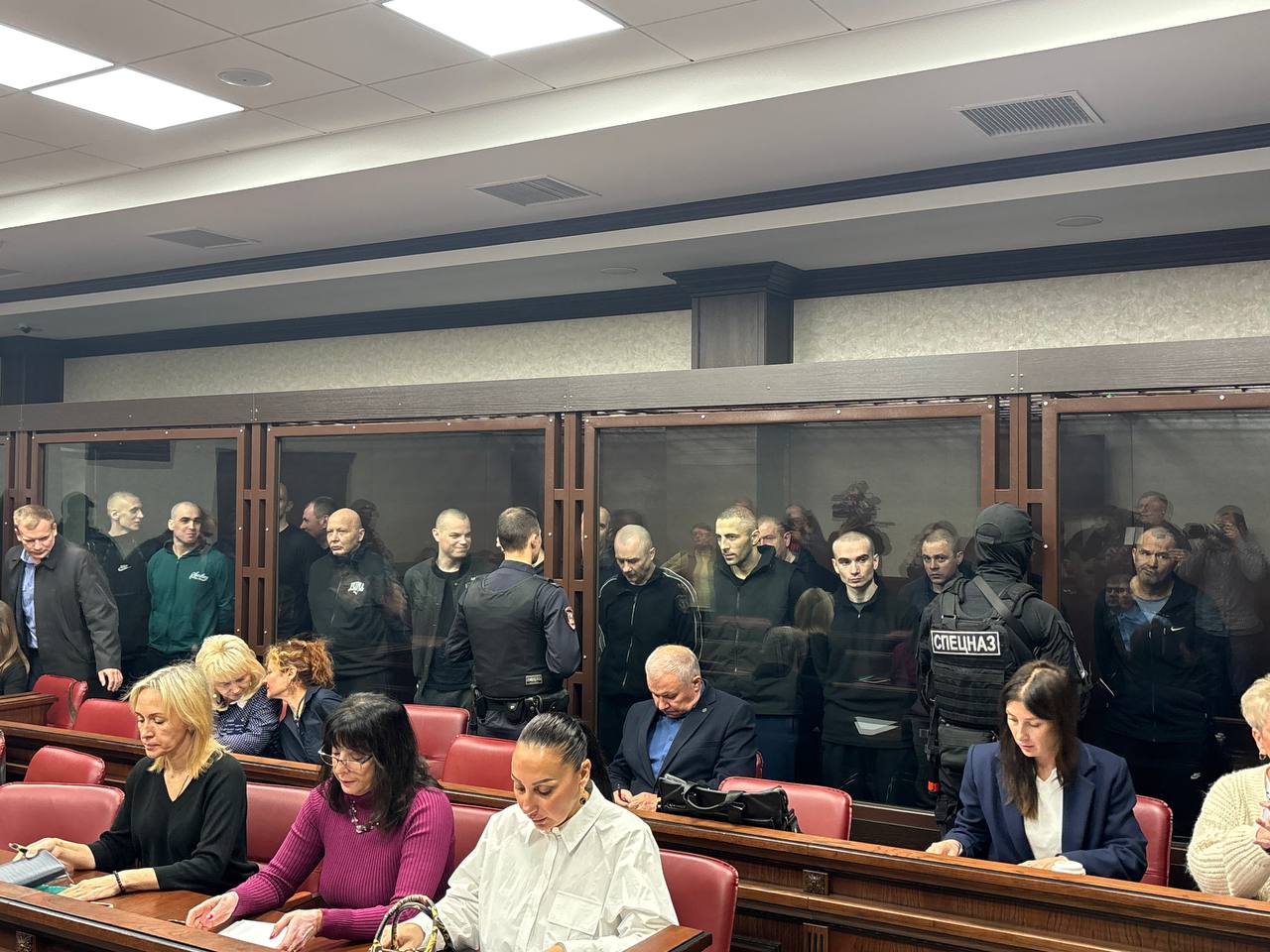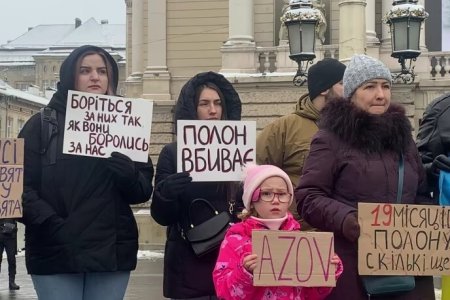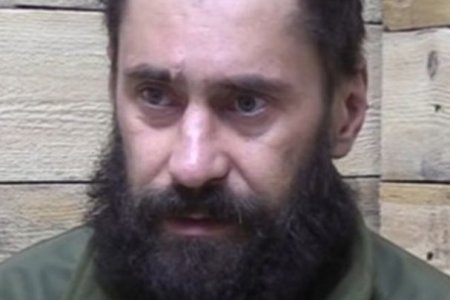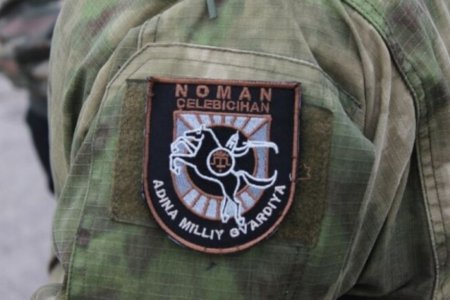
Russia’s notorious Southern District Military Court has passed sentences of between 15 and 21 years in a maximum-security prison colony against fifteen Ukrainian prisoners of war. The men’s ‘trial’ and the sentences are in flagrant violation of the Geneva Convention and other norms regarding prisoners of war. They also flouted the fundament principle that the law is not retroactive, since the politically motivated ruling used to ‘justify’ the trial was passed long after the men were first taken prisoner, and even after their ‘case’ was passed to the court. To make matters even more squalid, the same court was used to ‘try’ the men and to issue the ruling providing the pretext for their prosecution.
This case originally involved eighteen prisoners of war linked at same point with the Aidar Battalion. Two women medics – Lilia Prutian and Maryna Mishchenko – were released in a prisoner exchange, although the charges against them have only been made into separate proceedings. It is disturbingly unclear what has happened to driver Yevhen Piatyhorets, whose name also remains in the court list of defendants.
Although the Aidar Battalion was originally a volunteer formation which arose in reaction to Russia’s military aggression in early 2014. It was formally incorporated into the Ukrainian Armed Forces in 2015 as the 24th Separate Assault Battalion. All 18 men and women are, undoubtedly, prisoners of war who were taken captive in March or April 2022, while serving in their country’s Armed Forces. Prisoners of war [POW] have protected status, and it is a grave violation of the Geneva Convention and other international agreements to which the Russian Federation is a party to put them on trial for their military service.
Russia has openly tried to bypass such a clear prohibition by faking ‘terrorism’ and other charges under its criminal code against prisoners of war serving in several units of Ukraine’s Armed Forces: the Aidar Battalion; the Azov Regiment; and others. In the vast majority of such cases, the relevant rulings were passed long after the men and women became prisoners of war. With respect to the defendants in this case, they have been prisoners of war since the Spring of 2022. The ‘terrorism’ charges against them were passed to the Southern District Military Court in Rostov in June 2023, although that same ‘court’ only issued a ruling declaring something described as the ‘Aidar organization’ a terrorist organization was only issued on 23 September 2023.
Such violation of international law and of the most fundamental legal principle, namely that the law is not retroactive, proved of no concern to the investigators. All of the prisoners of war were charged with ‘involvement in the activities of organization which has, in accordance with RF legislation, been designated terrorist’ (under Article 205.5 § 2 of Russia’s criminal code). Many were also charged under Article 205.3 with ‘training in terrorist activities’ under Article 205.3.
They were all accused in addition with ‘planning violent seizure of power’, with Russia clearly also trying to make its supposed ‘redrawing’ of Ukraine’s territory retroactive by so charging Ukrainians defending their country against an invading army.
Despite the evident absurdity of the charges and illegality of the trial altogether, the prosecutor on 18 September 2025 demanded sentences against the 15 defendants of between 20 and 24 years’ imprisonment in a maximum-security prison colony.
In still further violation of the defendants’ rights, the hearings were closed to the public in October 2024. The announcement of the sentences, passed by presiding ‘judge’ Kirill Nikolaevich Krivtsov and two colleagues on 17 October 2025, was ‘open’, although only representatives of Russia’s propaganda media were admitted to the courtroom. The defendants were not only brought into court in handcuffs and placed in the ‘court cage’, but were further subjected to denigrating treatment by being forced to remain in chains throughout the reading of the sentences.
Krivtsov has already been implicated in horrific sentences against Crimean Tatar and other Ukrainian political prisoners and there were, unfortunately, no surprises on 17 October. The following sentences were meted out:
Dmytro Fedchenko - 15 years
Viacheslav Baidiuk - 16 years
Vitaliy Krokhalev - 16 years
Andriy Shcholykh - 16 years
They were all charged with ‘involvement in a supposed terrorist organization under Article 205.5 § 2 and of planning to violently seize power, under Article 278. The two medics, safely back in Ukraine but still facing these preposterous charges, are both accused of these as well. So too, according to the court page, was Yevhen Piatyhorets, and it is worrying that nothing is known as to why he was not part of this ‘trial’.
All of the other men were charged under Articles 205.5 § 2 and 278; but were additionally accused of ‘training in carrying out terrorist activities’.
Ihor Haiokha 18 years;
Volodymyr Makarenko 18 years;
Mykola Chupryna - 20 years;
Serhiy Nykytiuk - 20 years;
Taras Radchenko - 20 years;
Oleksandr Taranets - 20 years;
Vladyslav Yermolinski -20 years;
Semen Zabairachny - 20 years
Valeriy Hruzynov - 21 years;
Serhiy Kalinchenko - 21 years;
Roman Nedostup - 21 years.
All 18 prisoners of war were recognized as political prisoners by the authoritative Memorial Support for Political Prisoners Project in July 2024.
While it is unclear why the ‘trial’ was closed from October 2024, however Russia undoubtedly has a great deal to conceal. This, unfortunately, is likely to include torture to which the men were almost certainly subjected, and the horrific conditions in which all Ukrainian political prisoners are held.



